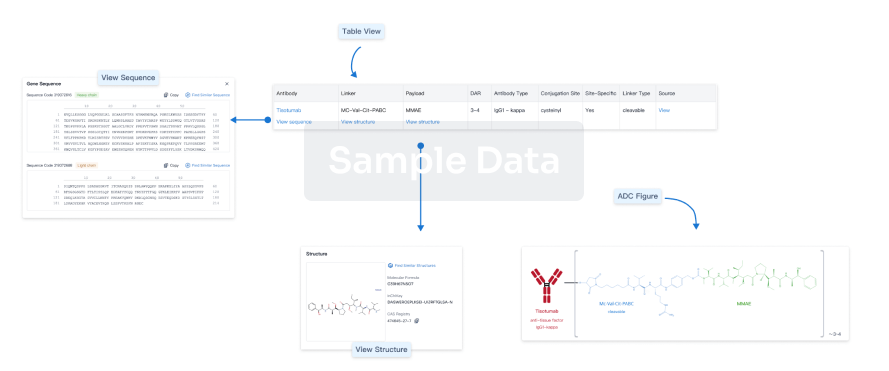It doesn’t matter how well a drug kills cancer cells if the patient doesn’t stay on treatment. Side effects lead many patients to interrupt dosing of a drug regimen, allowing cancer to advance, said Mohit Trikha, president and chief operating officer of Kivu Bioscience. Kivu is developing therapies intended to offer better tolerability and efficacy. The startup emerged from stealth this week, revealing $92 million in financing and plans to bring its lead program into the clinic in 2025.
San Francisco-based Kivu is developing antibody drug conjugates (ADCs), a type of drug comprised of a targeting antibody linked to a potent cancer-killing payload. While the ability to deliver a powerful, targeted strike to cancer cells has made this class of drugs a hot areas of research and dealmaking, ADCs still have limitations, Trikha said. Sometimes the toxic drug payload falls off the antibody, leading to adverse effects elsewhere in the body. Severe lung and eye toxicity are known complications of currently available ADCs.
Off-target toxicity happens when an ADC is unstable, said Trikha, whose 25 years of experience in cancer research includes serving as an oncology executive at AbbVie. Kivu aims to improve stability with technology licensed from Synaffix, an Amsterdam-based company whose ADC technologies are used by many biotech companies. Last year, contract drug and manufacturing organization giant Lonza acquired Synaffix for €100 million (about $107 million) up front in a move to strengthen its ADC service offerings to its customers.
Sponsored Post
The Funding Model for Cancer Innovation is Broken — We Can Fix It
Closing cancer health equity gaps require medical breakthroughs made possible by new funding approaches.
By Eve McDavid - CEO of Mission-Driven Tech
When it comes to designing an ADC, where the drug payload links to the antibody matters, Trikha said. The Synaffix technology enables linking at specific sites that improve the stability of the overall molecule. This approach is intended to widen the therapeutic window, the dose range that balances safety and efficacy. Kivu aims to deliver the highest dose possible with an ADC drug payload that is released only in the tumor microenvironment. Doing so should maximize the toxic effect to the tumor while limiting that effect elsewhere in the body so a patient does not have to reduce or interrupt dosing.
“In my mind, precision oncology is bringing the right drug to the right patient at the right time, with the right schedule,” Trikha said. “Cancer medicines, whether it’s an ADC or something else, has a benefit to risk profile. Not only do we want to have efficacious drugs, we want to reduce toxicity, improve tolerability, so patients stay on treatment.”
Kivu aims for each of its drugs to achieve single-agent activity. That’s important because with combination treatments, patients often reduce dosing to manage the regimen’s toxic effects, Trikha said. Another benefit Kivu aims to show is overcoming drug resistance. Cancers have a mechanism for kicking out a drug after it’s been internalized by the cell, which makes the cancer resistant to treatment. Trikha said the drug payload employed by Kivu’s ADC is not acted upon by a membrane protein cancer cells use to pump out a drug, so the drug remains in the cell to carry out its cancer-killing effects.
Kivu’s pipeline lists three programs. The most advanced of them, KIVU-107, is undergoing the preclinical research that could support an investigational new drug application (IND), laying the groundwork for a Phase 1 study expected to begin next year. Trikha declined to specify the types of cancers this ADC could treat other than to say they are solid tumors with unmet medical need. But he did say the biotech’s drugs are designed to inhibit topoisomerases, enzymes that support cancer growth. Trodelvy, from Gilead Sciences, and Enhertu, from AstraZeneca and Daiichi Sankyo, are examples of topoisomerase inhibitor ADCs.
presented by
Health Tech
What’s Keeping Healthcare CIOs Up at Night: How to Improve Patient Satisfaction by Handling Calls More Efficiently
Health systems have spent billions on portals while investments in modernizing the voice channel — the dominant preference of healthcare consumers — have taken a backseat.
By Stephanie Baum
Kivu takes its name from Lake Kivu, which is located on the border of the Democratic Republic of Congo and Rwanda. Volcanic activity has led to the buildup of dissolved gasses in the lower levels of the lake. A disturbance to the lake could lead to a deadly explosion of those gasses. Trikha said the time between IND-enabling studies and proof-of-concept data is referred by some as “the valley of death” due to the many failures in this stage of drug development. Kivu, the startup, aims to avoid these deadly pitfalls.
“The meaning of Kivu — we’re here to conquer cancer,” Trikha said.
Kivu’s Series A financing was led by Novo Holdings. Other participants in the round include Gimv, Red Tree, HealthCap, BioGeneration Ventures, M Ventures, and Innovatiefonds Brabant.
Photo by Flickr user Josep Casas via a Creative Commons license








